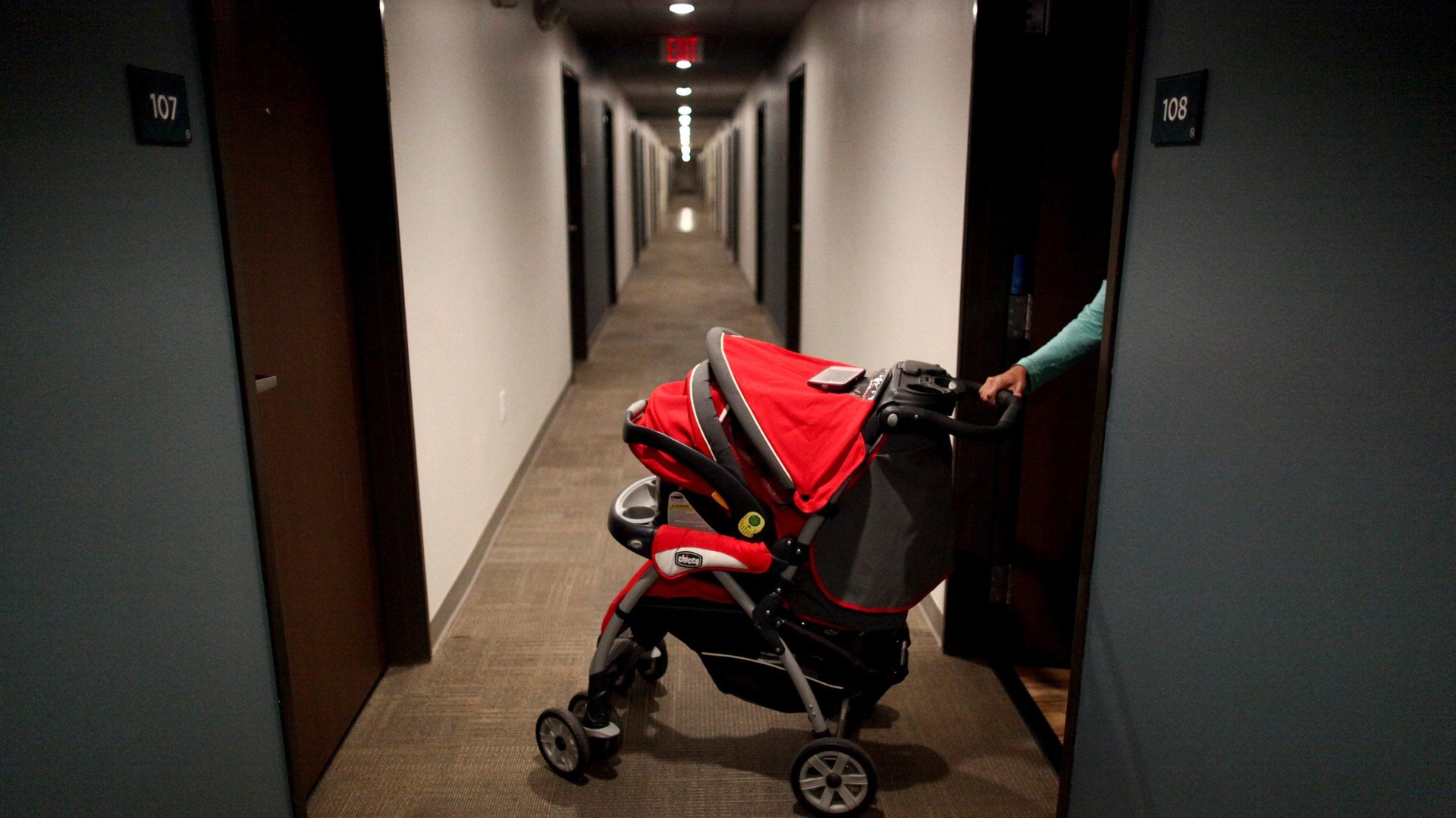What Hurricane Laura means for the pandemic-stricken hotel industry
Hurricane Laura made landfall along the Gulf coast of the United States early Thursday morning, bringing the threat of what federal officials called “unsurvivable” flooding. Normally, most of the thousands of evacuees would be directed to traditional emergency shelters in convention centers and school gyms.


Hurricane Laura made landfall along the Gulf coast of the United States early Thursday morning, bringing the threat of what federal officials called “unsurvivable” flooding. Normally, most of the thousands of evacuees would be directed to traditional emergency shelters in convention centers and school gyms.
This time, inland hotels in Texas and Louisiana are preparing to host an unusually large number of evacuees—and they’re already reaching capacity.
Because of concerns about Covid-19 transmission, officials in both states are urging residents in the storm’s path to stay in hotel rooms rather than cluster in designated shelters. Texas officials have managed to set aside 225,000 hotel rooms across the state, and are scrambling to find more as they quickly fill up.
The Federal Emergency Management Agency (FEMA) regularly makes use of hotels as short-term housing for displaced people in the wake of disasters, as families search for longer-term options. But because of their relatively high cost and limited capacity, hotels are not typically emergency managers’ first choice for shelters during the storm itself. That has changed this year, as the pandemic introduces a wave of complications to emergency response practices and raises the risk of transmission in the tight quarters of normal shelters .
On Aug. 26, officials in Austin (about a three-hour drive from the coast) had to turn evacuees away from the city’s emergency response center after all 15 designated hotels reached capacity. Hotels outside that program are filling up as well. The same is true in northeastern Louisiana.
“We’re selling out, definitely because of the storm. And it’s above average compared to what’s normal in hurricane season,” said Victor Smith, a receptionist at the Aloft hotel near the Austin airport.
The sudden surge in hotel demand could be a lifeline for the local hospitality industry, which has been one of the sectors most impacted by the pandemic. Nationwide, hotels have lost around $50 billion in room revenue since mid-February, according to the industry’s national trade association.
“It’s been easier to find rooms during the storm, because our hotels were at much lower occupancies because of the pandemic,” said Scott Joslove, president of the Texas Hotel and Lodging Association, who has been working with state officials to find rooms for evacuees. “But it’s still a lot of demand.”
Hotels are naturally well-equipped to act as an alternative to shelters, said Rick Lagiewski, a professor of hospitality at the Rochester Institute of Technology who studies the role of hotels in emergency management. They have ample access to bedding, bathrooms, and cleaning supplies, and frequently have backup generators in case of blackouts. Those located in hurricane-prone areas routinely prepare to protect the building from damage.
During the pandemic, most hotels have also established new health and safety protocols. So in many ways, hosting evacuees is no different from hosting tourists. The biggest difference, Lagiewski said, is in how the staff interacts with guests who may feel doubly traumatized after fleeing a natural disaster and fearing for their health.
“They understand the physical challenges, but now you have a guest like you’ve never had before,” said Lagiewski. “Hotels will really have to provide extra personal attention, and a lot more communication and empathy than normal.”
Acting as a government-sponsored shelter also requires hotel managers to consider a business tradeoff, Lagiewski said. Disaster response agencies typically pay below-market rates to book large blocks of rooms, offering hotels the security of being full. But that choice limits the possibility to collect standard rates from the wave of post-disaster professionals—insurance adjusters, contractors, power company workers—who inevitably follow a major a storm.
Samantha Montano, a professor of emergency management at the University of Nebraska-Omaha, said it’s too early to have data on how much FEMA and other agencies are spending on hotels this year relative to others. And she said it’s still unclear if hotels will ultimately be able to accommodate the necessary number of evacuees or leave some stranded, especially families without the resources to travel or book a room out of their own pocket.
For those who do make it to a hotel room, it won’t feel like a vacation.
“You’re sitting in front of the TV watching the hurricane unfold. You have a lot of family members packed into one room, with all your most precious belongings,” she said. “It’s not an easy experience.”